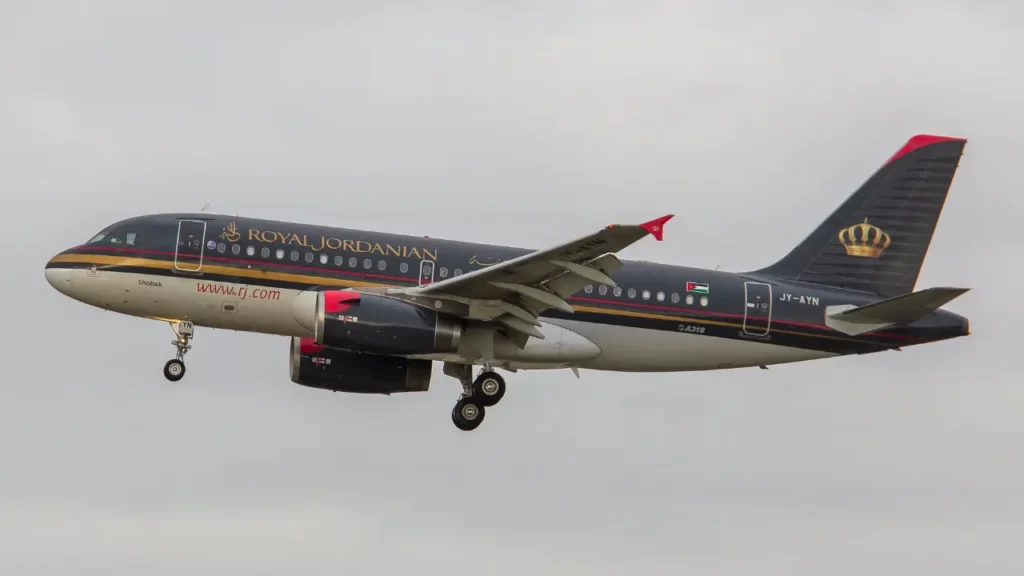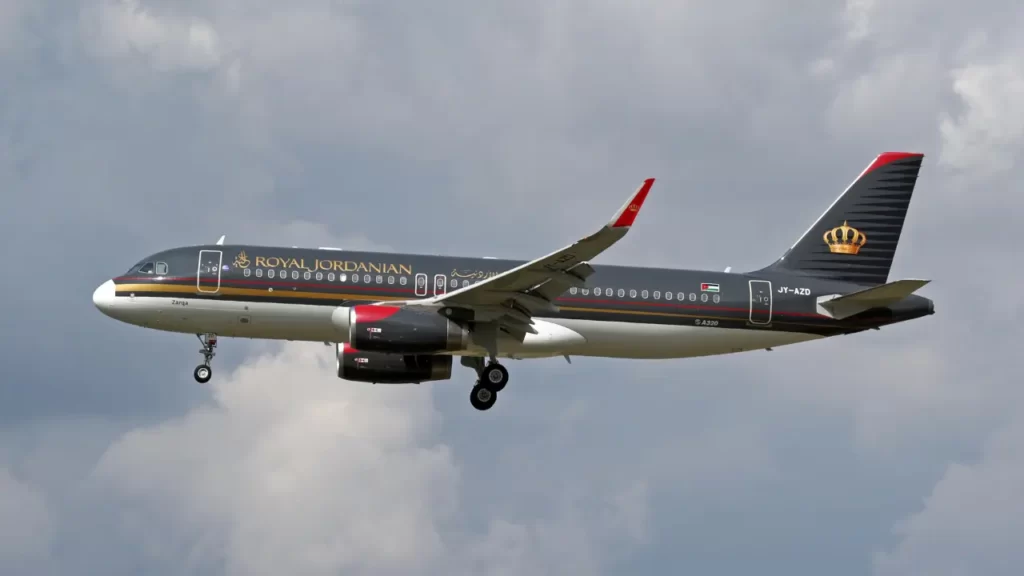
Royal Jordanian Overview:
Royal Jordanian Airlines, often referred to as Royal Jordanian, is the flag carrier of Jordan. Established in 1963, the airline has grown to become a prominent player in the Middle East aviation industry. Here is an overview of Royal Jordanian:
Table of Contents
Founding and Early Years (1963):
- Royal Jordanian was founded on December 9, 1963, as Alia Airlines. It initially started as a private airline before becoming the national carrier of Jordan. The name was later changed to Royal Jordanian Airlines to reflect its status as the country’s official airline.
Hub and Base
- The main hub of Royal Jordanian is Queen Alia International Airport (AMM) in Amman, Jordan. The airport serves as the central base for the airline’s operations.
Ownership and Status
- Royal Jordanian is a public shareholding company, and the government of Jordan retains a significant ownership stake. The airline has undergone privatization efforts while maintaining its role as the national carrier.
Fleet Composition
- The Royal Jordanian fleet consists of a mix of Airbus and Embraer aircraft. The airline operates a combination of narrow-body and wide-body jets to serve short-haul and long-haul routes.
Global Network
- Royal Jordanian serves a diverse network of destinations, connecting Jordan with key cities in the Middle East, Europe, Asia, Africa, and North America. The airline provides both passenger and cargo services.
Oneworld Alliance Membership
- Royal Jordanian is a member of the Oneworld alliance, a global airline alliance that facilitates cooperation and code-sharing among member airlines. This alliance membership allows Royal Jordanian passengers to benefit from a broader range of travel options and seamless connections.
Classes of Service
- The airline typically offers multiple classes of service, including Economy Class and Crown Class (Business Class). Passengers in Crown Class enjoy premium services, including priority check-in, access to airport lounges, and enhanced in-flight amenities.
In-Flight Services
- Royal Jordanian provides in-flight services such as entertainment, meals, and Wi-Fi on selected flights. The airline strives to offer a comfortable and enjoyable travel experience to its passengers.
Digital Services
- Royal Jordanian has embraced digital technologies to enhance the overall customer experience. This includes online booking platforms, mobile apps, and other digital services for convenient reservations and travel management.
Environmental Initiatives
Like many airlines, Royal Jordanian is conscious of environmental sustainability. The airline may explore initiatives to reduce its carbon footprint, adopt fuel-efficient technologies, and align with industry efforts toward a more sustainable aviation sector.
Crisis Management and Challenges
The aviation industry, including Royal Jordanian, has faced challenges, including economic downturns and the impact of global events. The airline has implemented various measures to navigate challenges and maintain operational resilience.
Cultural Prominence
Royal Jordanian serves as a symbol of Jordan’s aviation and plays a role in promoting the country’s culture and tourism. The airline’s services contribute to Jordan’s connectivity with the world.
Royal Jordanian History:

Founding and Early Years (1963)
Royal Jordanian Airlines was founded on December 9, 1963, under the name Alia Airlines. It initially began as a private airline and later became the national carrier of Jordan. The name was changed to Royal Jordanian Airlines to reflect its status as the official airline of the Hashemite Kingdom of Jordan.
Government Ownership and Operations
Initially, Royal Jordanian was a fully government-owned airline, and it played a significant role in the development of air transport in Jordan. The government provided crucial support for the airline’s operations and growth.
Global Network Expansion
Royal Jordanian expanded its global network over the years, connecting Jordan to major cities in the Middle East, Europe, Asia, Africa, and North America. The airline focused on serving both passenger and cargo markets.
Oneworld Alliance Membership (2007)
In 2007, Royal Jordanian joined the Oneworld alliance, a global airline alliance that includes some of the world’s major carriers. The alliance membership enhanced Royal Jordanian’s connectivity and allowed passengers to benefit from a wider range of destinations and services through codeshare agreements with other member airlines.
Privatization Efforts (2001-2007)
In the early 2000s, Jordan pursued privatization efforts, including the partial privatization of Royal Jordanian. The government aimed to introduce private sector involvement in the airline to enhance efficiency and competitiveness.
Fleet Modernization
Royal Jordanian underwent fleet modernization initiatives, introducing new and modern aircraft to enhance operational efficiency, fuel economy, and passenger comfort. The airline’s fleet included a mix of Airbus and Embraer aircraft for various route profiles.
Classes of Service and In-Flight Services:
Royal Jordanian offered multiple classes of service, including Economy Class and Crown Class (Business Class). Crown Class passengers enjoyed premium services, including priority check-in, access to lounges, and upgraded in-flight amenities.
In-Flight Entertainment and Connectivity
- The airline invested in in-flight entertainment and connectivity services, providing passengers with a range of entertainment options and the ability to stay connected during their flights.
Digital Transformation
- Embracing digital technologies, Royal Jordanian introduced online booking platforms, mobile apps, and other digital services to streamline the booking process and enhance the overall travel experience for passengers.
Environmental Initiatives:
- Royal Jordanian, like many airlines, showed an awareness of environmental sustainability. The airline may have explored initiatives to reduce its carbon footprint, adopt fuel-efficient technologies, and align with industry efforts toward sustainability.
Crisis Management and Challenges:
- The airline, like others in the industry, faced challenges related to economic downturns, regional instability, and global events. Royal Jordanian implemented various measures to navigate challenges and ensure operational resilience.
Cultural and Economic Contribution:
- Royal Jordanian played a role in promoting Jordan’s culture and tourism. The airline contributed to the economic development of the country by facilitating international trade and tourism.
